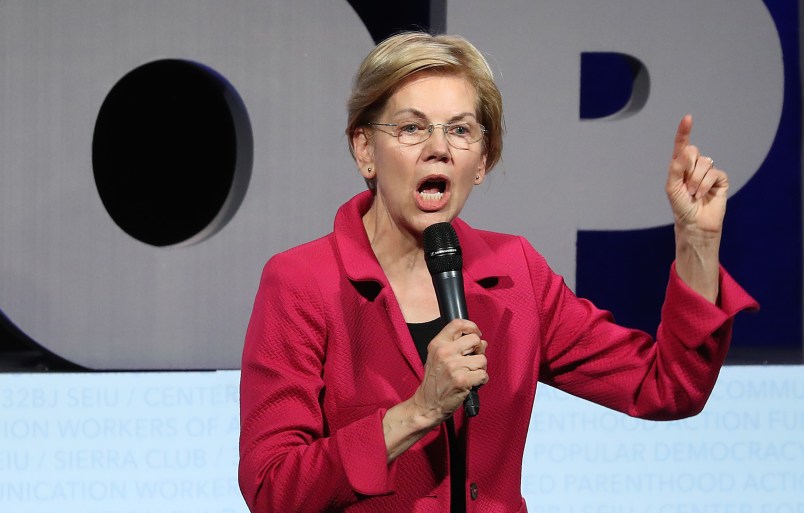WASHINGTON–Elizabeth Warren called for a constitutional amendment to protect the right to vote and for ethics rules to be expanded to cover the Supreme Court. Beto O’Rourke floated an end to the Electoral College, called for a national ban on gerrymandering, and promised as president, he’d sign an executive order requiring his cabinet to hold monthly town halls. Bernie Sanders called for the public funding of federal elections and making Election Day a national holiday.
At the first major presidential cattle call of the campaign cycle Monday, many leaders in the Democratic presidential field fully embraced democracy reform as a key 2020 issue.
Those weren’t the only calls for democracy reform. Sen. Amy Klobuchar (D-MN) called for a new voting rights act and a new national law guaranteeing former felons the right to vote. Former federal Housing and Urban Development Secretary Julian Castro called for an expansion of the Freedom of Information Act to cover Congress.
“The party’s starting to coalesce around these broader structural forms to democracy,” Ezra Levin, the co-chair of the progressive Indivisible Project, told TPM.
Some of these proposals are newer than others — Democrats have called for repairing the Voting Rights Act since the Supreme Court gutted it in 2013, for overturning the Citizens United Supreme Court decision that gutted campaign finance laws, and have fought voter identification laws for more than a decade. But candidates are putting these issues on equal footing as more traditional policies like climate change and healthcare for the first time.
Others were brand new: It was the first time O’Rourke called for an executive order “requiring every single cabinet member to hold a meeting every single month,” and the first time he fully embraced ending the Electoral College.
The We the People summit was cohosted by the Service Employees International Union, Communications Workers of America, Planned Parenthood Action Fund, the Sierra Club, and the Center for Popular Democracy Action, a democracy reform group.
Not every new left-wing proposal was embraced by the candidates — there was more hesitation from some on more bare-knuckled power fights like packing the Supreme Court or ending the Senate filibuster.
“If Mitch McConnell, Paul Ryan, and Donald Trump had two years like they just had [without the legislative filibuster]… we would have lost that battle, Obamacare would be gone,” Sen. Cory Booker (D-NJ) said, reiterating a previously stated position.
Sanders said he worried that some liberals’ proposal to expand the Supreme Court by two seats to respond to the controversial appointments of Supreme Court Justices Neil Gorsuch and Brett Kavanaugh would lead to Republicans doing the same thing, but floated another potentially major reform.
“My worry is the next time the Republicans are in power they will do the same thing,” he said. “What I do think may make sense is if not term limits, then rotating judges to the appeals court as well, letting them get out of the Supreme Court and bringing in new blood.”
The liberal organizers who’ve been pushing these reforms were thrilled at the debate, noting that some issues that were barely on the radar before this year are quickly becoming major debates in the primary — and some are moving towards the Democratic consensus position.
“If this event had happened two months ago, I would have said there’s been a lot of action on taxes, on healthcare, on environment, but we just haven’t seen the candidates talk about democracy very much,” Levin said. “Now, it’s the talk of the town — this is what everyone’s getting pushed on. … All the issues have moved faster than I thought.”






